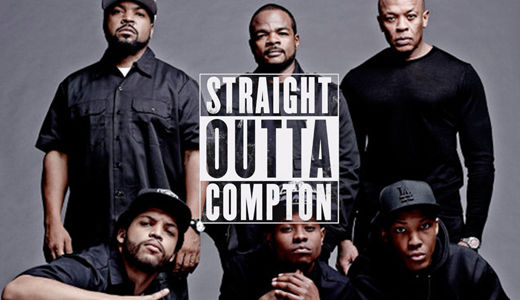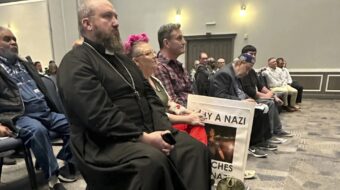
This is part 2 of a 3-part series on the “racial conversation.” You can find here part 1 and part 3.
The recent release of the Chicago police department dashcam video featuring Officer Jason Van Dyke’s shooting of Laquan McDonald reminded us all once again that Black lives really don’t seem to matter in U.S. society. Of course, nobody should really need a reminder, right? Haven’t we had enough reminders? Sandra Bland, Michael Brown, Tamir Rice, Eric Garner, Trayvon Martin, Oscar Grant, Amadou Diallo, and on and on. Collectively speaking, (white) Americans have one heck of a short memory, I guess, because with each murder, with every new act of violence against and violation of Black lives, we hear the obligatory call for the need to have a racial conversation in America. And then there’s a lot of talk. A lot of noise. And then we have another murder.
It’s not clear how this whole racial mess in America, by which I mean the unmitigated and unceasing violence against and exploitation of people of color, hasn’t been cleared up. I mean, after African-American Harvard professor Henry Louis Gates, Jr. was wrongfully arrested by police for breaking into his own house in the summer of 2009, President Obama arranged a sit-down between Gates and the white cop who arrested him. The two talked over a beer, exchanged pleasantries, and supposedly had THE conversation, resolving hundreds of years of violence, exploitation, oppression, discrimination, and prejudice against African Americans and other people of color in the United States. It seemed like we had arrived at the Age of Aquarius, with harmony and understanding as well as sympathy and peace abounding.
Yet, while the conversation seems ongoing and unceasing, somehow it never quite seems to get had. The Fifteenth Amendment to the U.S. Constitution was ratified in 1870, granting African American men the right to vote, and somehow in 1965 African Americans and U.S. society at large still found themselves engaged in a struggle to pass a voting rights law to grant citizens rights supposedly they already possessed. Didn’t we have that conversation? Not really, it seems, as we keep winding up in the same situation of persistent racial inequality, exploitation, and disenfranchisement-even as we pretend as a society that we are addressing these issues, and even as the Supreme Court recently gutted the Voting Rights Act while the Republican Party moves to disenfranchise voters across the nation.
So why can’t that conversation be had? Or, why does it seem to go nowhere-at least nowhere productive of a more humane world?
To have a conversation means people, particularly white people, have to listen and acknowledge reality. What we need to understand is why this is so difficult. As I was thinking about these questions recently, my mind was driven back to F. Gary Gray’s film Straight Outta Compton. Released earlier this year, the hard-hitting film relating the saga of the hip-hop group N.W.A. (Niggaz With Attitude) provides insights into why any meaningful “racial conversation” tends to get short-circuited in American politics and culture, or, more precisely, why white America, to use a generalization that seems necessary, is so hard of hearing on issues of race and racism.
Given that the film dramatizes in full force police violence against and incessant harassment of African Americans in Los Angeles, which are the conditions of production from which N.W.A’s music emerges, critics at the time of the film’s release remarked on the film’s timeliness given the rebellious political actions in Ferguson and Baltimore-and the deaths of African Americans at the hands of police that triggered them-which preceded the film. Yet, we might also ask, when wouldn’t the film be timely, given the rather persistent violence against people of color in a U.S. society that has been racist since its inception? What seemed to make the film timely for some critics, we need to stress, was that mass protests in Ferguson and Baltimore drew attention to police violence against African America, not that fatal police violence against African America somehow erupted anew or became timely. Indeed, both the spate of media attention given to police shootings of African Americans and the critical attention characterizing Straight Outta Compton as timely actually accentuate the lack of attention given historically to the normalized conditions of police repression in African American communities.
What critics haven’t remarked on in Straight Outta Compton and what is perhaps one of the most impactful elements of the story is the way the film diagnoses why this “racial conversation” is so hard to have, or why white America has such a hard time acknowledging and listening to the reality of racial oppression in America. The film highlights in part the production and release in 1988 of N.W.A.’s first album Straight Outta Compton, which featured the controversial song “F-k tha Police.” While we see represented in abundance in the film the relentless police harassment and assault on young African American men which inspires and justifies the song, the film also highlights its vexed if not overtly racist critical reception in white America. Not only do we see the Detroit police warn N.W.A. before a concert not to perform the song and then later swarming and rounding them up for arrest afterward, but we also see respected “lame-stream” media icon Tom Brokaw using his network news bully pulpit to lambaste N.W.A. for hitting new cultural depths in its music.
Certainly, any of us of who lived through the late 1980s and the 1990s remembers the controversy and outrage much hip-hop and gangsta rap stoked within the white dominant U.S. culture. What Straight Outta Compton so effectively dramatizes, though, is the way the controversy the dominant culture created, while drawing attention to the music, actually worked to deflect attention away from the music’s meaning and the social conditions that gave rise to its production. Rather than seeking to understand the music and the anger, frustration, and political critique of racist Amerika to which it gave voice, the dominant media focused on the music’s profanity and vulgarity, seeking to dismiss the artists and their aesthetic practice as uncultured in typical racist fashion rather than actually seeking to understand what the film represents as a crafted aesthetic response to conditions of racial oppression and injustice in South Los Angeles.
In other words, Straight Outta Compton shows us white America’s refusal to take a listening part in the racial conversation. At the same time as the film dramatizes white America’s resistance to understanding this cultural form, it also instructs the culturally illiterate in how to understand rap music. At one point in one of his slave narratives, Frederick Douglass schools his reader in how to understand the spirituals. He points out that often white Northerners would visit the South and, witnessing enslaved African Americans singing spirituals while they work, depart with the misapprehension that because they were singing the slaves must be happy enough. Not grasping the sorrowful meaning of the cultural form of the spiritual, the white Northerners were also unable to grasp the meaning of the slave’s experience. Similarly, Straight Outta Compton provides us with a reading lesson that urges us to comprehend what might seem to the uninitiated listener as profane and provocative lyrics as in fact meaningful and thoughtful lyrical responses to the experience of the profane and obscene living conditions of racist Amerika.
After seeing the film myself, I took my two pre-teen sons to see the film precisely because they listen to rap music and I wanted them to understand the meaning of the music and the experiential conditions that inform it. Notwithstanding some of the rather adult content of the film, I was nonetheless glad I did when recently over the holidays I had the very typical experience of having to encounter the usual smorgasbord of relatives comfortably spouting within earshot of my two sons political beliefs which, on my ideological radar, range from troubling to downright inhumane and offensive. One relative, engaging my sons in conversation, asked them what kind of music they like to listen to. They told him they listen to rap music. Before seeking to learn about their enjoyment or understanding of the music, this relative lectured them on how racist ALL rap music is because of the prevalence of the “n-word.” They were advised not listen to this culturally degraded music.
This experience really bore out the film’s depiction of the white dominant culture as more interested in critiquing the music rather than critiquing the conditions to which the music bears witness. Somehow rap music, not the racist conditions it addresses, is the problem, recalling the opening of The Souls of Black Folk when W.E.B. Du Bois laments so frequently being asked, as an African American, how it feels to be a problem. Just as Du Bois wants to underline how white racism is the problem and not African Americans, so Straight Outta Compton diagnoses white America’s listening problem.
In unfurling the story of N.W.A., though, the film takes a step a further in diagnosing the challenges the artists of N.W.A. face in bringing the critical voice of hip-hop to the “racial conversation” in America. Again, much as Du Bois in The Souls of Black Folk critiques and aims to provide direction for the Black intellectuals to transform American culture, so Straight Outta Compton tells the story of a group of Black artists who become divided in fights over money, attempting to critique and point a meaningful leadership path for Black artists and intellectuals. When Ice Cube leaves N.W.A. after a dispute with Easy-E and the manager Paul Heller over money, he as well as N.W.A. then, as the movie represents the situation, devote their artistic energies to producing music dissing each other, forgoing the political edge and social critique that gave life to the expressive musical form. And later in the film Dr. Dre leaves his studio to find his entourage partying while he’s been working hard to make music, and he laments the evolution of the rap music industry away from its experiential roots. The film also dramatizes the distancing of the artist from the political and social conditions that inspired them when we see the members of N.W.A. each in isolation in their luxurious homes watching the beating of Rodney King and the subsequent rebellions on television.
The artists each pursue their own ways and their own wealth, highlighting the way commercial culture tends to pose the achievement of wealth and the escape from poverty as the chief objective for the individual, such that the social conditions the music meant originally to address remain unchanged.
In this sense, both the values of commercial and consumerist culture and its ability to subsume radical critique as well as a white racist ear that refuses to listen to or engage an African American aesthetic disarm the possibility for a racial conversation in America. Straight Outta Compton makes its best effort to get us to listen.
Straight Outta Compton http://www.straightouttacompton.com/
Music composed by: Joseph Trapanese
Produced by: Ice Cube, Tomica Wright, Matt Alvarez, F. Gary Gray, Dr. Dre
Screenplay: Andrea Berloff, Jonathan Herman
Rated R, 2h 30min, Digital HD, Blue Ray and DVD available in January 2016












Comments